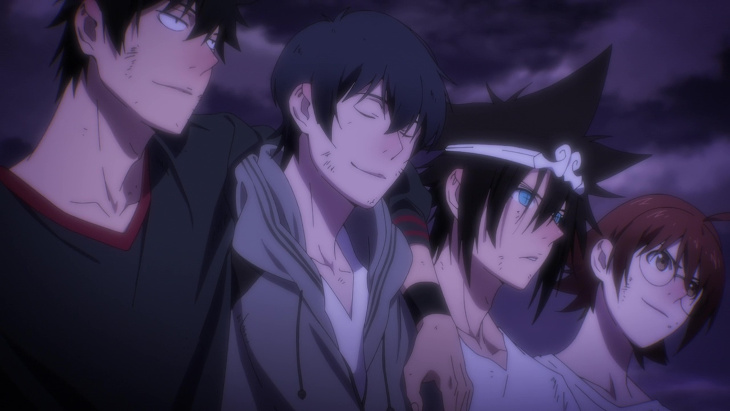
“All of life is a battle. You’ve gotta keep fighting if you want to live.”
Trying to describe The God of High School is actually a problematic process, due to one basic issue: I have no idea what is going on in this show. Around the midway-point of the season it began to dawn on me that the more I watched of it, the less I understood. It is a sci-fi, fantasy, tournament-series set in the real world featuring high school students who are never shown attending school and who might be trying to kill a god or something, because… That’s where that sentence must end, due to my understanding not extending any further. For all of its confusing qualities, The God of High School is an enjoyable series which I can recommend solely on the merits of its quirky characters and kinetic action alone. When it comes to the series’ story, however, I’m almost constantly in the dark about what is going on, and while a portion of that confusion can be attributed to cultural barriers, it hardly encompasses the entirety of the issue.
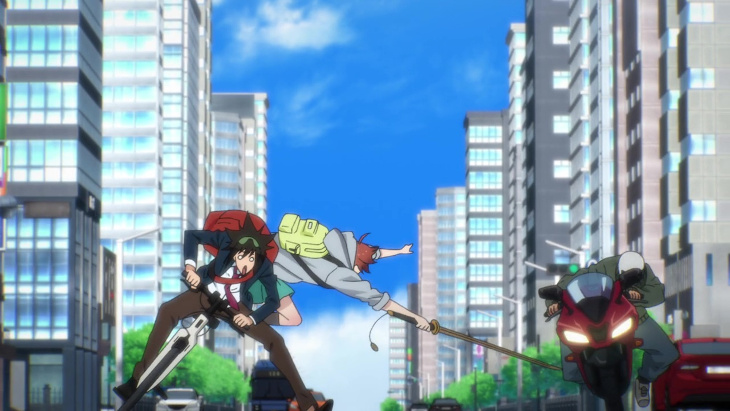
The story follows the mysterious Jin Mori, a highschooler in South Korea who joins the eponymous martial arts tournament simply because it will offer him the opportunity to fight with strong opponents. Along the way he befriends and becomes teammates with a karate expert named Han Daewi and a swordswoman named Yoo Mira. Each of them possess their own aims as the reward for winning the tournament is the granting of any wish. That being said, the tournament also has another purpose. It is intended to track down an individual who houses a Key which… can destroy the world if a god gets it, or… Look, I already told you that I have no idea what is happening here. Once things start getting mystical, the show presents a lot of information drawn from a variety of Eastern mythologies and it goes through the blender that is God of High School’s universe. This can make it difficult to determine whether confusion is due to not personally being familiar with a Chinese myth or because you’re simply not following GOH’s peculiar logic.
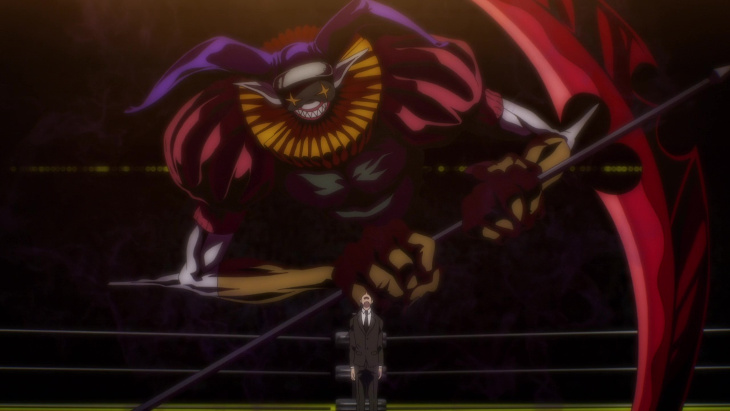
Then again, even if you are following the show’s logic that doesn’t mean that the narrative always works. For example, as the tournament goes on, it is revealed that many of its participants and officials are capable of drawing upon powerful supernatural forces and employ them in combat. The most common reaction to these inhuman powers is… modest surprise. This is a show which is supposed to be set in something resembling the real world as it makes use of real world cities like Seoul, but the moment someone summons a gigantic pierrot with a scythe everyone seems to take it in stride. In fact, the God of High School Tournament seems odd all around. This is a martial arts competition being broadcast worldwide and yet idiotic bullies are still willing to pick a fight with a karate master who clearly should have been the talk of the city. This also means the peculiar responses to magical abilities is an issue which extends nationwide. A character literally turns into a fox creature in the ring, but we never hear shock from the spectators or even get as much as a news blurb about how martial arts-performing furries are on the rise.
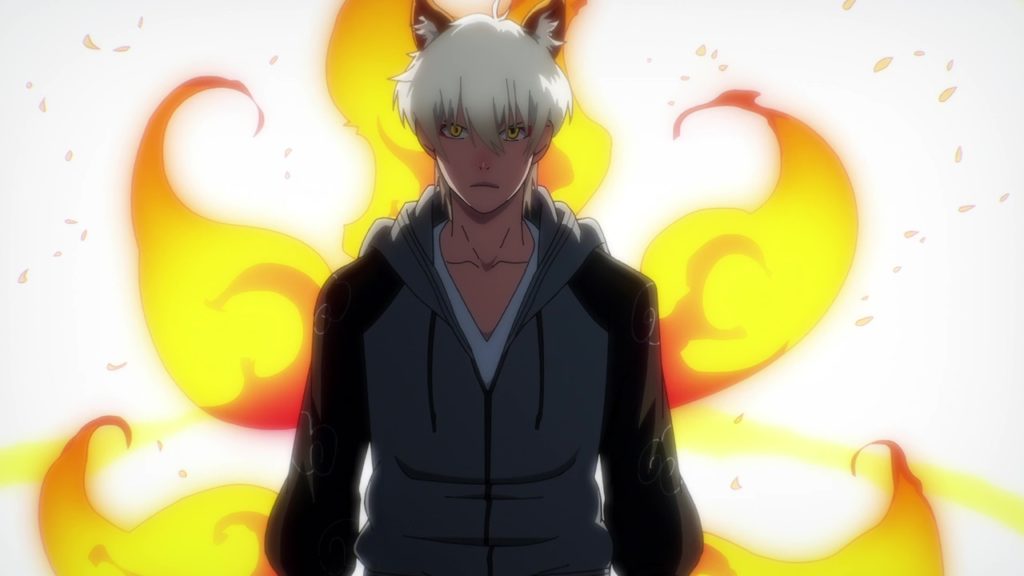
The production for this show is handled by MAPPA so it comes as no surprise that it’s brimming with visual spectacle. The combat is fluid and carefully blends realistic physical movements with ridiculous and over-the-top repercussions. The occasional integrated CG is less impressive, but falls firmly in the realm of, “Good enough to not be distracting.” The opening is solid, but I found myself skipping it more often than not. I originally thought Mori’s unconventional cross-shaped pupils may prove to be a distracting trait, but I found that was not the case. Frankly, the character designs were impressively diverse without feeling as if they didn’t belong in the same series. The pacing does come across as a bit frantic at points. In episode 4, for example, we have a character get introduced, there is a proposal, an engagement, relationship doubts, tragic flashbacks, and the show is on the cusp of a wedding all before the midway point of the episode. To call the pacing brisk is an understatement, and when it is combined with the complicated aspects of the show’s lore, I sometimes found myself wondering if I had inadvertently skipped an episode.
Before I wrap up, a few Notes and Nitpicks:
- I was quite fond of the comedy in the first episode, but it didn’t remain a strong selling point for me. I think that its premiere may have been the comedic peak for this first season.
- The diverse character designs add a nice touch to the tournament, as many of the combatants have distinctive qualities that one might associate with major players who are bound to make it to the final rounds. It doesn’t add a ton of suspense to the proceedings, but it at least adds some.
- Between this and Tower of God, it seems to me that Crunchyroll’s attempts to adapt manhwa to the anime market could best be described as solid, if not spectacular and thoroughly confusing.

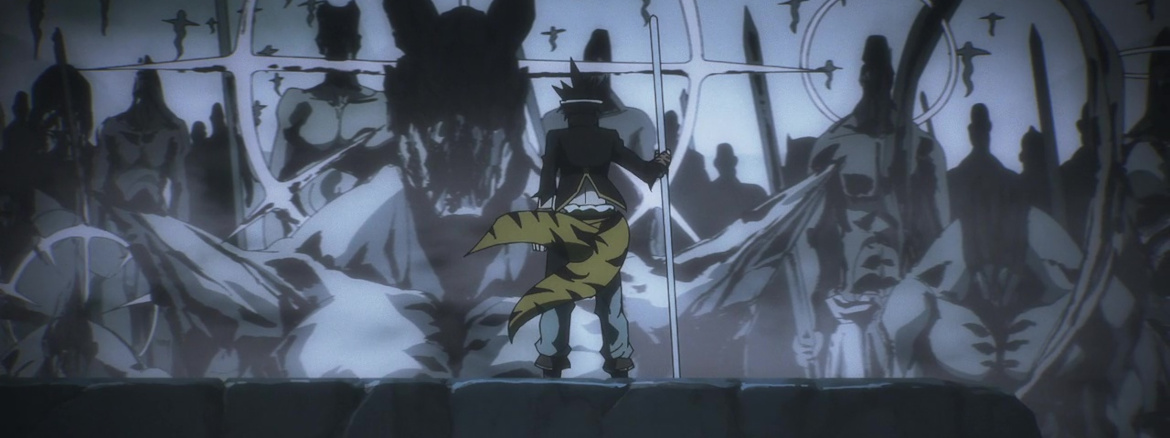
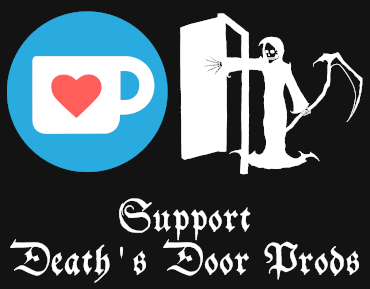

Add comment